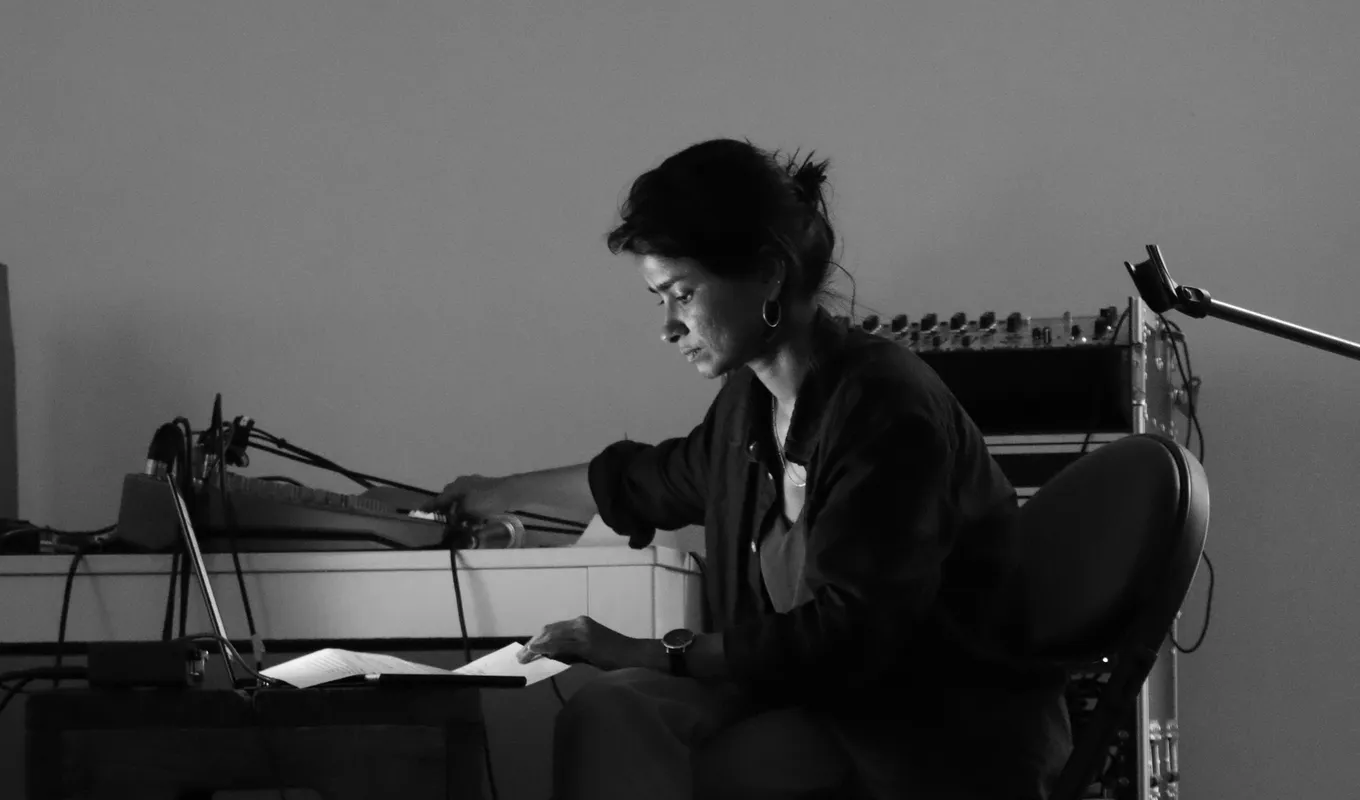Priyanka Chhabra, Merve Ertufan & Mochu, Merv Espina, Alana Hunt, Laura McLean, Rahee Punyashloka, Joel Sherwood Spring, Aarti Sunder, Suvani Suri, Thomas Smith and Aasma Tulika
“Recompositions”
Expanding on the ideas within The place we do not know is the place we are looking for, we hosted a series of discussions and performance lectures by artists from across Australia and South Asia.
Under the title Recompositions, the program assembled resonant practices that seek to invent new languages to hold ineffable dreams, desires, stories, and encounters.
Here on Offsite, view presentations that took place over the weekend of February 21 & 22, documented by John Hewison.
Discussing Alana Hunt: Surveilling A Crime Scene
Alana Hunt, Rahee Punyashloka and Priyanka Chhabra discuss Alana Hunt's film Surveilling a Crime Scene, examining the materialisation of non-Indigenous life on Miriwoong Country through the town of Kununurra in remote north-west Australia. Surveilling a Crime Scene overlays what may otherwise seem like discontinuous domains—a dam, tourism, a historical monument, agriculture, a police station, cigarette burns, bureaucratic forms—to produce tools, techniques, and procedures of power and oppression.
Merv Espina & Kulagu Tu Buvongan: For every name a forest
In this discussion, the artists ask: How can political and social justice art give concrete contributions to the causes and communities they address? What do projects like these actually mean to a community under threat of death? What are the lessons and failures of such projects, and what measures can be done to address them?
Joel Sherwood Spring: HOLECODED
Joel Sherwood Spring takes us through his recent explorations in constructing a game that plays itself. Extending from his work HOLECODED, the session explores subjective states made by and through digging and extraction. Looking at an experience of the plot holes that extractive practices produce, both the tunnel and tunneller are brought forth in this journey.
Thomas Smith: Pathos: Notes on a system
Thomas Smith explores a series of questions related to his work Pathos: The transience of things, including: Is technocracy an ideology, a philosophy, a religion, a pipe dream or a pyramid scheme? What might a soft dictatorship of data and rationality feel like? Will technocratic management be forever frustrated by the social?
Merve Ertufan & Mochu: Ion Drift: Postscripts On The Move
Looking at geography as philosophical terrain, set largely around the Aegean region in Türkiye and parts of Greece, this lecture-performance takes off from notes about the historical origins of philosophical thought in Ancient Ionia and how it was tied to notions of political freedom and equality. Generally, philosophy is assumed to be an abstract, contemplative activity. However, the systems of thought developed in Ionia reveal how freedom of movement and the emergence of the individual are both tied to the recognition of immanent physical laws, as opposed to speculative, transcendental ideas.
Aasma Tulika: Bootleg Tongue Mixtape
Re-composing musical traditions to bypass rubrics of classicisation, Bootleg Tongue Mixtape draws upon histories of speech and rhythms that address communication systems, and excesses of social hierarchies. It is a call and response to the ways in which binaries appear and circulate in the attention economy.
Recompositions was curated by Laura McLean and Suvani Suri, and presented by West Space and Liquid Architecture across various locations in Naarm/Melbourne. The talks presented here took place at the CY Space in Collingwood Yards. Supported by the Centre for Australia-India Relations Maitri Cultural Partnerships Program.




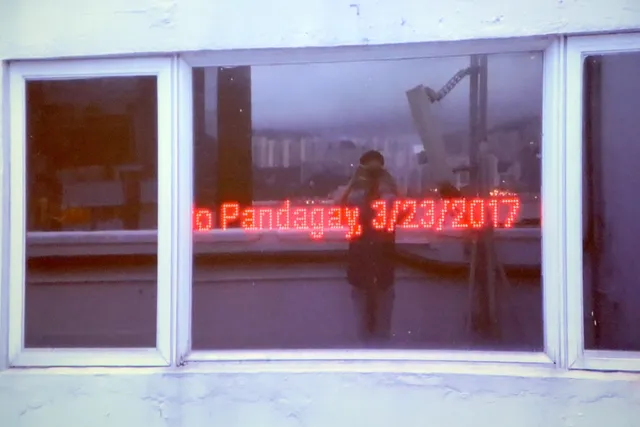

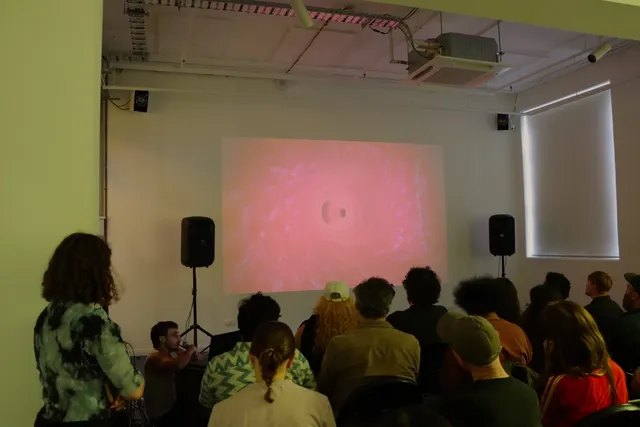



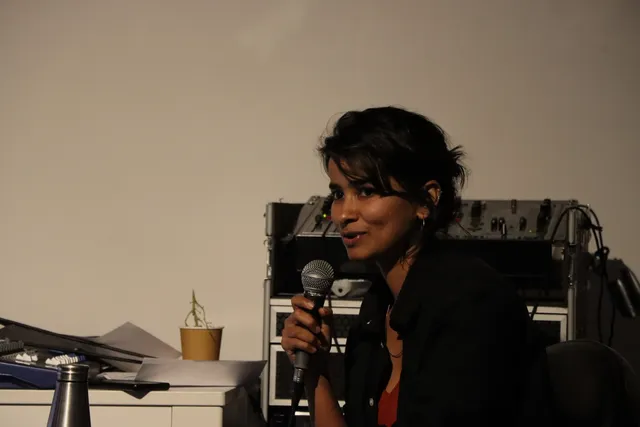

Priyanka Chhabra lives and works out of Delhi, India, as an artist, film director and editor exploring notions of home, memory, landscape and relationships of people to places. She articulates her practice as an archaeology of silences, digging at sites characterised by trauma; physical and emotional. Since 2017 her work has focussed on reconciling memories and experiences of the Partition of Punjab (1947) through a trilogy of works - Rock Paper Scissors (2024), Iqraar-naama (The Agreement, 2022) and Pichla Varka (The Previous Page, 2019).
Merve Ertufan makes installations, videos, sound-arrangements, texts and objects. Her practice engages with what might be called the microphysics of the mind, observing inconsistencies, gaps and dead-ends in language and habit. Speech, written text and gestural detours of the body frequently combine to form game-like relationships, with compulsive paradoxes, stories, questions and riddles informing their play.
Based between Delhi and Berlin, Mochu works with video and text, arranged as installations, lectures and publications. Technoscientific fictions and subcultural formations feature prominently in his practice, often modulated with anxiety, futurity and weird selfhoods. Hosting cameos from art history, media theory and philosophy, recent projects have explored the nostalgic remains of cyberpunk, civilizational battles on the internet, corporate encounters with deep time, and other psychonautic drifts across landscape, madness and states of intoxication.
Merv Espina is an artist and curator in Las Piñas, Metro Manila. His artistic practice involves sound, exploring it as both space, form and material. He is a member of the Academy of the Arts of the World.
Alana Hunt makes art and writes, finding ways for this material to move affectively through the public sphere and the social space between people. She has worked with journalists, filmmakers, human rights defenders and lawyers on award-winning bodies of work that unfold over many years, with gradual yet accumulating resonance in the places they take root, and beyond. Alana’s work is driven by lived experiences and honed through a forensic approach to research. It is shaped by relationships and often materialises through video, printed matter, photography, publishing, public events and illicit interventions.
Laura McLean is a curator and researcher based in Naarm/Melbourne. As Associate Curator at Liquid Architecture and Artistic Director at Blindside, she works with experimental practices and critical ideas engaging sound, listening, and media technologies across Australia and the Asia-Pacific.
Rahee Punyashloka is an artist, writer, researcher, and experimental filmmaker based out of Bhubaneswar and New Delhi. Working across disciplines, he seeks to illuminate the vastly un/underrepresented artistic history of the anti-caste struggle and the Dalit identity through interventions around lingering absences and speculative extrapolations within the archive.
Joel Sherwood Spring Wiradjuri anti-disciplinary artist based in Sydney/Gadigal/Wangal lands. He works collaboratively on projects that examine ways of seeing Country through technology and desires for Indigeneity. Joel’s work confronts and channels both the desire for land and minerals at the core of our national identity and what today appear as 'progressive' identity formations. He explores the potential of Indigenous materialist readings of art and architecture towards repatriation, reparation, and return of land. He is learning how to employ art making, exhibition making, publishing, and pedagogy within what is recognised as black or Indigenous studies.
Aarti Sunder is an artist living and working in India. She works with moving image, writing, drawing and painting. Her interests lie within techno-politics, focusing on the study of infrastructure and society – from contemporary labour practices, fictional edges of protest, myth, and digital-terrestrial play to expanded platform politics.
Suvani Suri is an artist, writer and curator in New Delhi, India. Suvani works with sound, text, and intermedia assemblages that think through modes of listening and voicing. Her artistic, research, and curatorial inquiries plumb the gaps, cracks, and leaks found within the technological processes of production, mediation and perception of sound.
Thomas Smith is an Eora/Sydney based artist, musician, educator and researcher. His practice combines performance, video, electronic music, speculative fiction, websites, curatorial projects and critical writing. Thomas’ work is concerned with the social effects of computational systems, the politics of creative economies, emerging digital subjectivities and electronic music as a mode critical inquiry.
Aasma Tulika is an artist based in Delhi. Her practice engages with moments that disturb belief systems, and their intersection with technology and social relations. She works with unwritten codes, fictional events and peer networks that appear in the form of video installations, sound albums, performances and publications.
Related
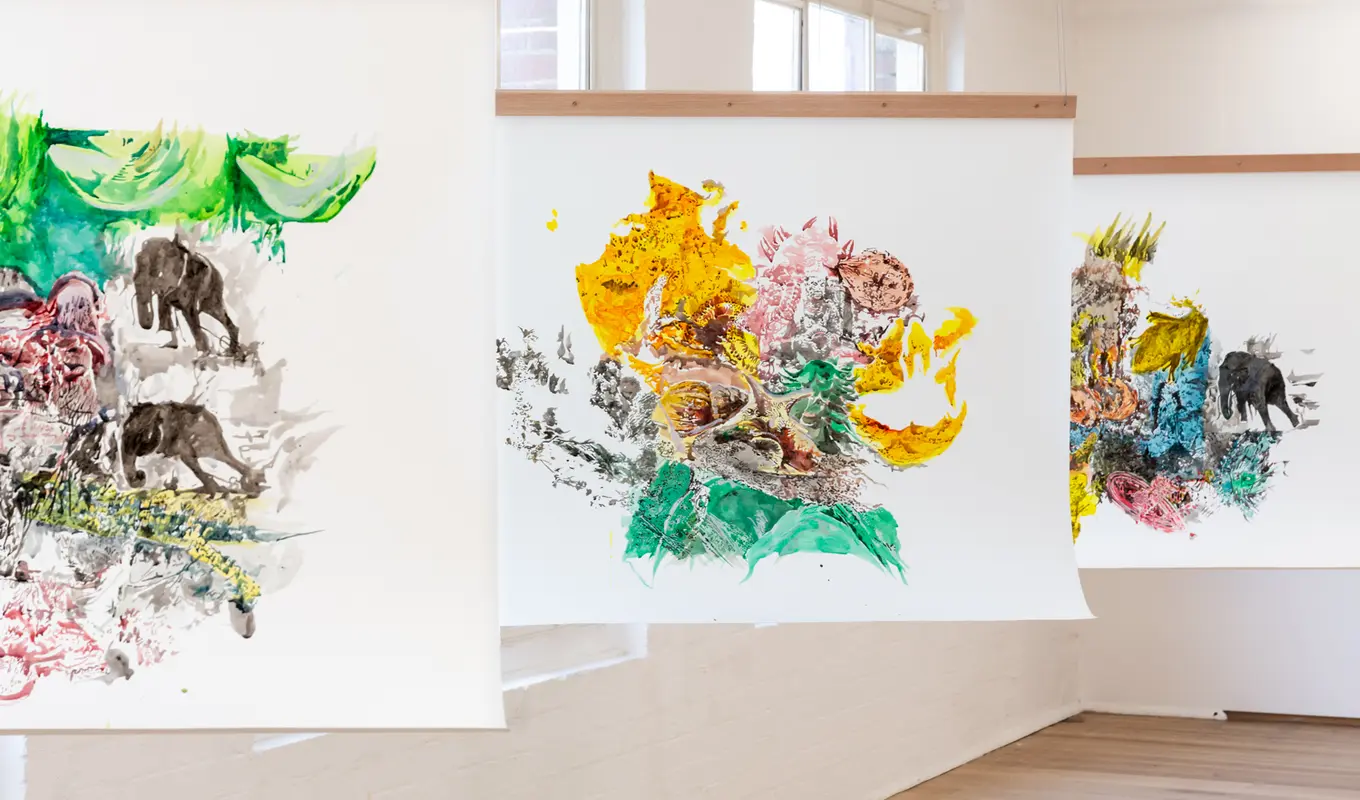
“The place we do not know is the place we are looking for”
Priyanka Chhabra, Fileona Endoxa Dkhar, Merve Ertufan & Mochu, Uzma Falak, Kathryn Gledhill-Tucker, Aarti Jadu & Claire de Carteret, Rahee Punyashloka, Hayden Ryan, Thomas Smith, Aarti Sunder, Aasma Tulika, Laura McLean and Suvani Suri
1 Feb → 29 Mar 2025
